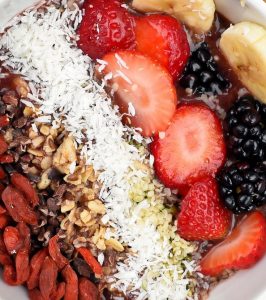 Fiber may not be the fanciest nutrient around, but it sure is an important one! Most Americans fall far short of their daily intake recommendations. How much do you get? Health experts recommend 25 grams per day for women and 38 grams per day for men up to age 50. Women and men older than 50 should get 21 and 30 grams per day, respectively. Yet, American adults eat on average just 10 to 15 grams of fiber each day!
Fiber may not be the fanciest nutrient around, but it sure is an important one! Most Americans fall far short of their daily intake recommendations. How much do you get? Health experts recommend 25 grams per day for women and 38 grams per day for men up to age 50. Women and men older than 50 should get 21 and 30 grams per day, respectively. Yet, American adults eat on average just 10 to 15 grams of fiber each day!
Health Benefits: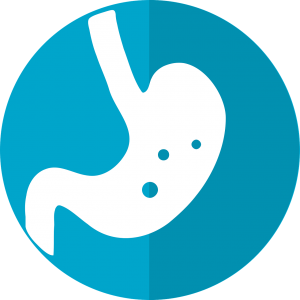
- Helps us feel full longer, and helps to control weight
- Helps food move smoothly through the digestive tract
- Promotes gut health
- Lowers risk of breast, prostate, and colon cancers
- Helps regulate blood sugar
- May reduce or delay symptoms of type 2 diabetes
- Lowers blood cholesterol
- Helps reduce vascular inflammation
With so many wonderful health benefits it’s no wonder why fiber is so important!
Getting More:
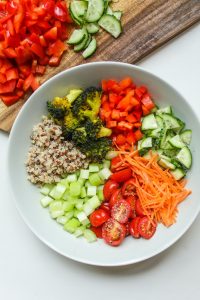 Maybe you think of Metamucil or Benefiber or other common fiber supplements when you think of fiber intake. And, if you are like me, you dread the idea of those! So, it is a good thing that all the fiber we need can come from real, whole foods that we can enjoy.
Maybe you think of Metamucil or Benefiber or other common fiber supplements when you think of fiber intake. And, if you are like me, you dread the idea of those! So, it is a good thing that all the fiber we need can come from real, whole foods that we can enjoy.
It is abundant in fruits, vegetables, beans, nuts, seeds, and whole grains. Watch the video for five simple ways to increase your intake every day or you can read about them below:
- Eat more beans. Beans are one of the most fiber-rich foods.
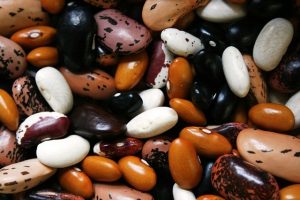
- Choose whole grains instead of refined grains. For example choose a whole grain bread rather than a
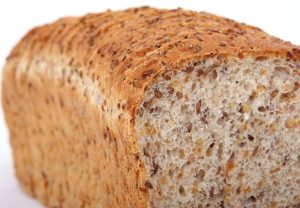 white bread for your sandwich or brown rice instead of white rice for your stir fry or burrito.
white bread for your sandwich or brown rice instead of white rice for your stir fry or burrito. - Include vegetables with most of your meals. Aim to fill about one third to half of your plate or bowl with vegetables.
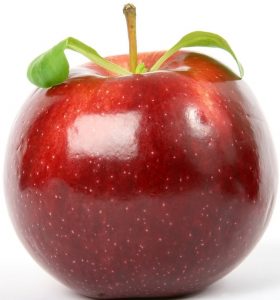
- Choose fiber-rich snacks more often than highly processed snacks.
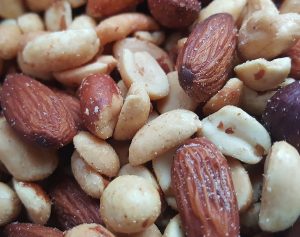 Consider foods like fruit slices, vegetable sticks, popcorn, whole grain crackers, nuts or seeds.
Consider foods like fruit slices, vegetable sticks, popcorn, whole grain crackers, nuts or seeds. - Eat whole fruits or vegetables (whether fresh, frozen, or canned) instead of juice most of the time.
Before increasing your fiber intake consider these three things:
- Increase intake slowly over time, this will allow your gastrointestinal tract to adjust.
- Be sure to increase water intake to avoid constipation.
 Fiber absorbs water, which helps stool move more easily through the digestive tract.
Fiber absorbs water, which helps stool move more easily through the digestive tract. - Talk with your doctor or dietician if you have digestive or other gastrointestinal issues.
Fiber can be gotten from a variety of foods. By choosing more whole fruits and vegetables, whole grains, beans, and nuts and seeds every day, you can begin to reap the benefits that fiber has to offer.


Always great information has been shared on this site! Keep up the great work as I learn a lot from reading the posts!